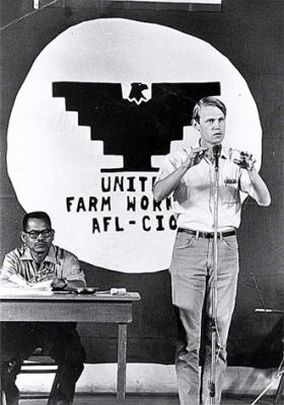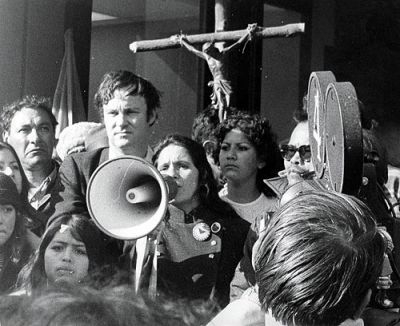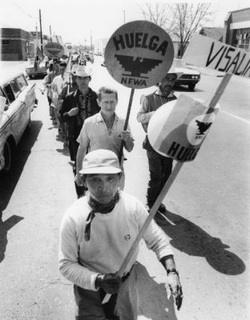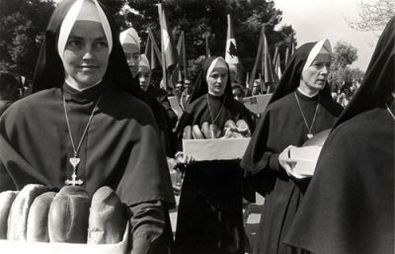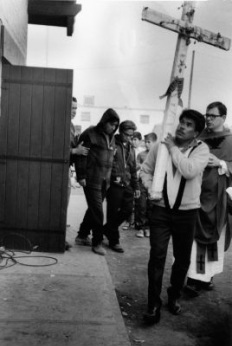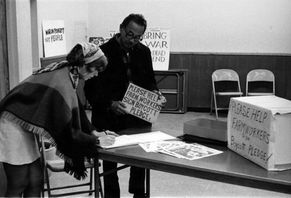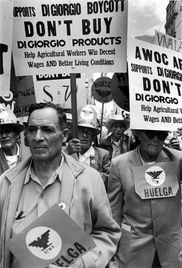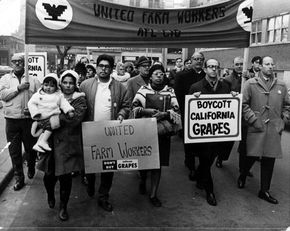The Filipino farmworkers showed responsibility in fighting for their rights by being highly organized, promoting worker’s welfare, and practicing nonviolence. Through these efforts, the farmworkers gained massive popular support and achieved the goals of the strike.
If the strike had been violent, the striking farmworkers may not have secured the public’s support and the growers may not have been pressured to enter into a collective bargaining agreement with the Union in 1970.
But as it happened, with rights and responsibilities going together, with the solidarity of the Latino workers under the leadership of Cesar Chavez and Dolores Huerta, help of people like Senator Robert F. Kennedy, Walter Reuther, the support of church, labor, student, professional groups and the public, in general, the strike started by a group of elderly Filipino farmworkers (the “Manongs”), became a significant milestone in American labor history and henceforth became known as the “Great Delano Grape Strike of 1965.”
If the strike had been violent, the striking farmworkers may not have secured the public’s support and the growers may not have been pressured to enter into a collective bargaining agreement with the Union in 1970.
But as it happened, with rights and responsibilities going together, with the solidarity of the Latino workers under the leadership of Cesar Chavez and Dolores Huerta, help of people like Senator Robert F. Kennedy, Walter Reuther, the support of church, labor, student, professional groups and the public, in general, the strike started by a group of elderly Filipino farmworkers (the “Manongs”), became a significant milestone in American labor history and henceforth became known as the “Great Delano Grape Strike of 1965.”
|
“The vast majority of the arrest cases were dismissed. Most of them were for violating an injunction or for unlawful assembly x x x when you think that 3,589 people were arrested, I think well over 3,400 of those were clear First Amendment issues and had nothing to do with even alleged disturbing the peace or anything like that. So it was an amazing performance by the farm workers. They really kept their cool when they were attacked.” |
“I was so disturbed by the violence of the ‘60’s. I felt that this (boycott) was one of those rare nonviolent pushes for change that we should support if we were ever going to see change … Also I wasn’t alone in my sympathy and protest … There was an organized way for me to become involved.”
- Lynn Ransford
Teacher & Mother of 2
Los Angeles, CA
- Lynn Ransford
Teacher & Mother of 2
Los Angeles, CA
"Since this right to bargain with strength as free men has been consistently denied to farmworkers in this rich agricultural valley, their only recourse in an effort to gain it for themselves has been to strike. We are satisfied that no other avenues of procedure have remained open to them, and that the only way in which they can secure justice for themselves is to continue striking until such time as the owners are willing to enter into negotiation. Consequently, we feel compelled to identify ourselves unambiguously with their protest against such unjust treatment, and commend the pledge of non-violence which they have faithfully fulfilled."
-Religious Leader's Statement
December 14, 1965
